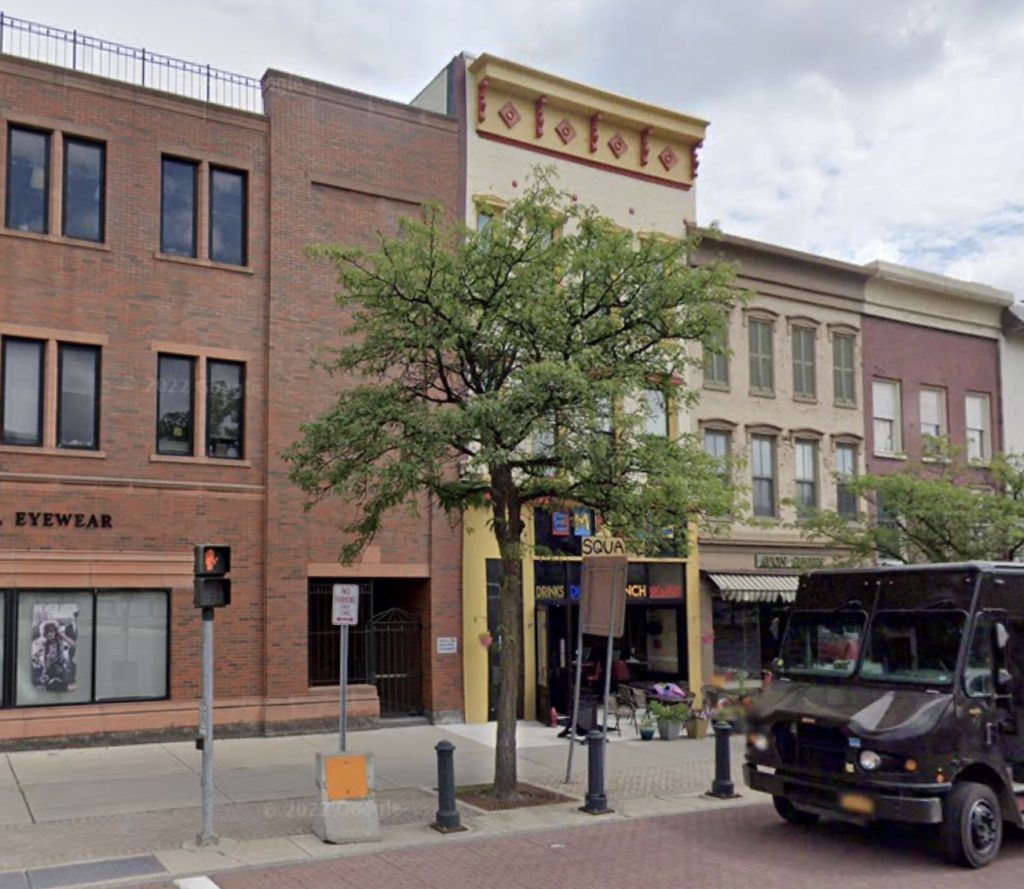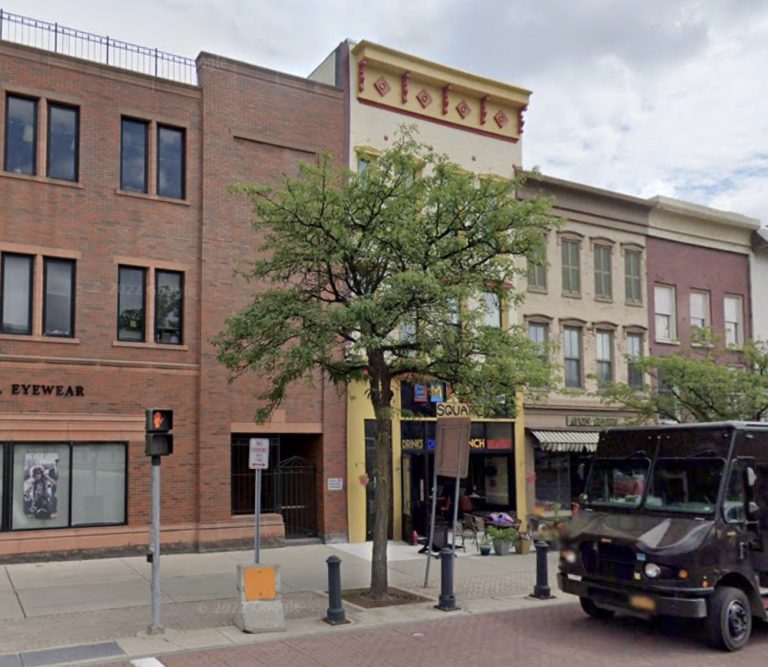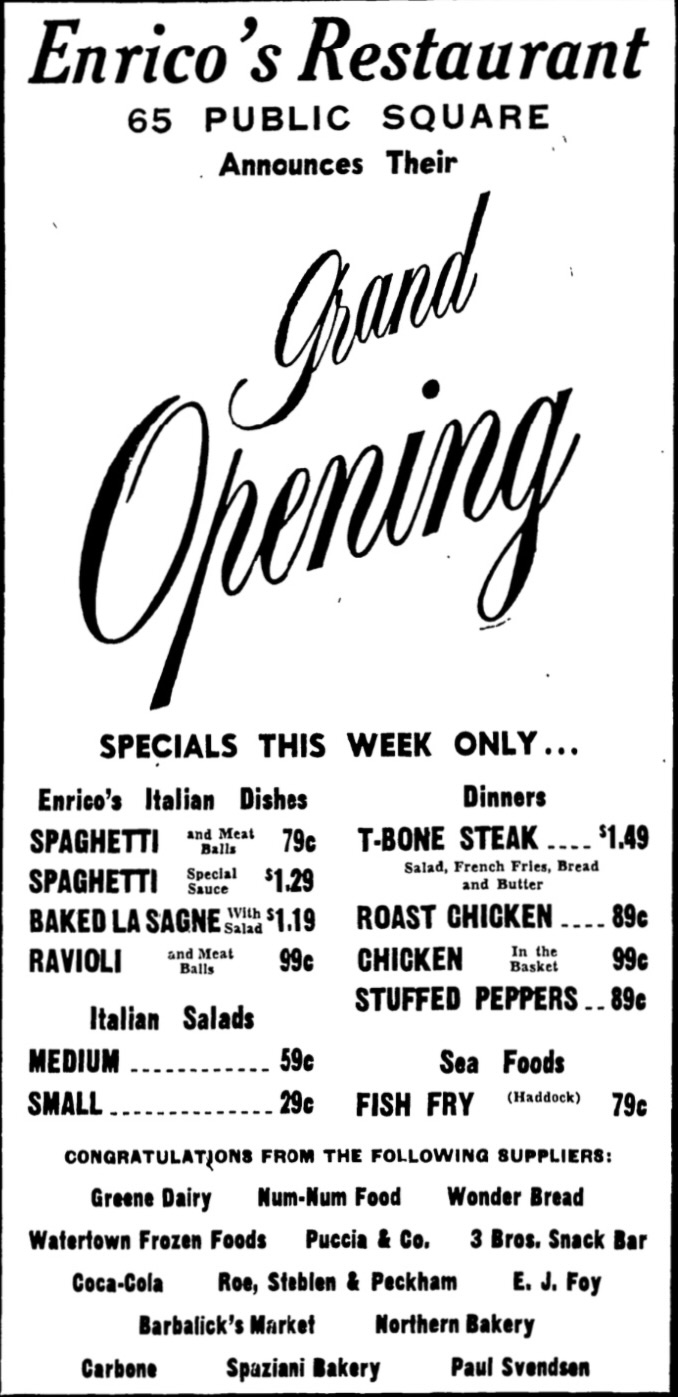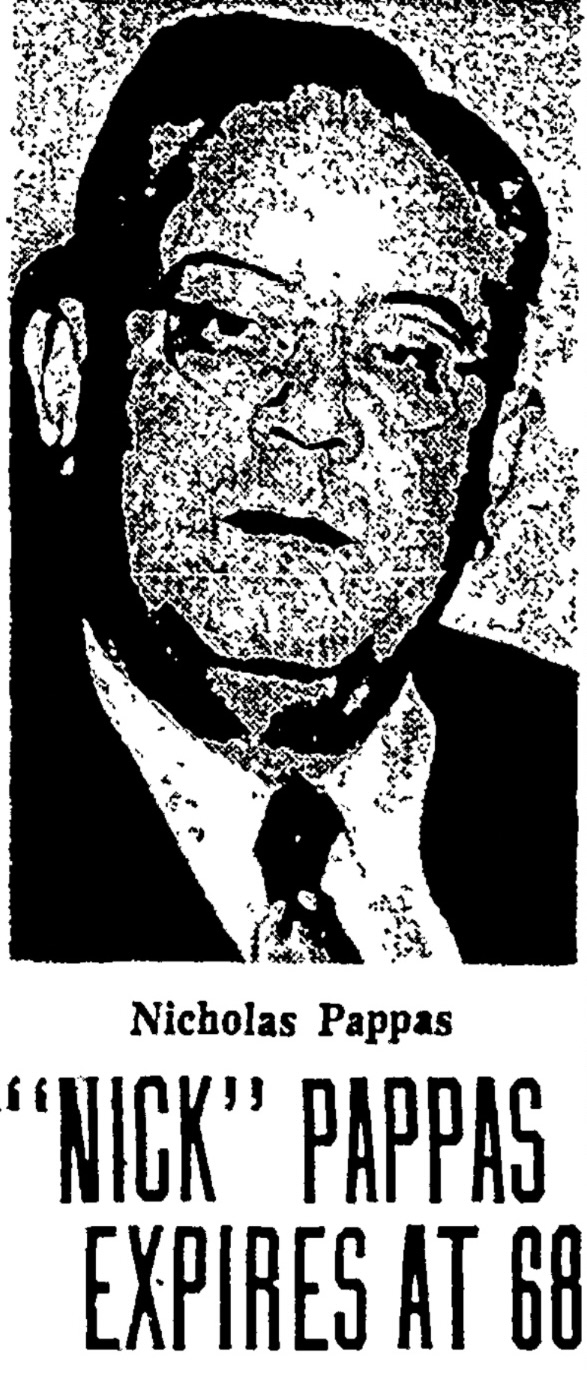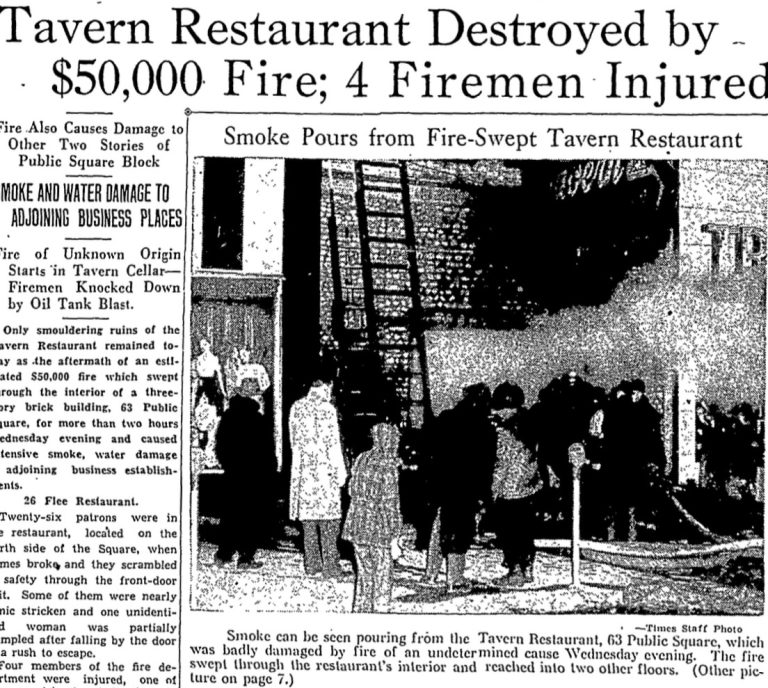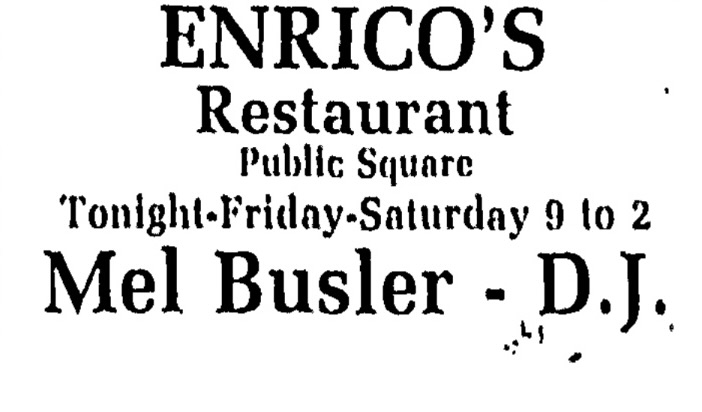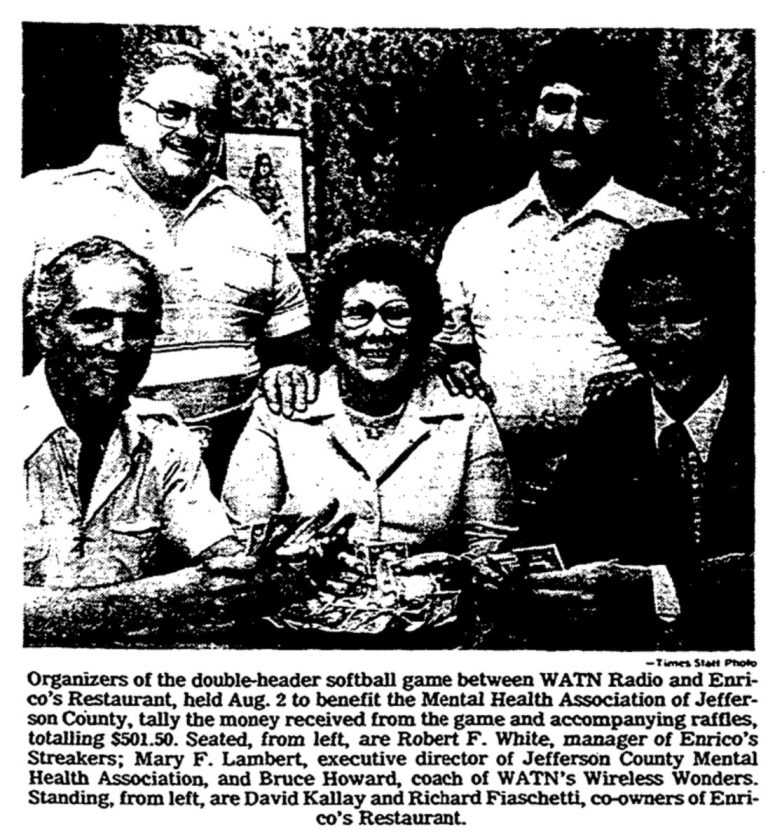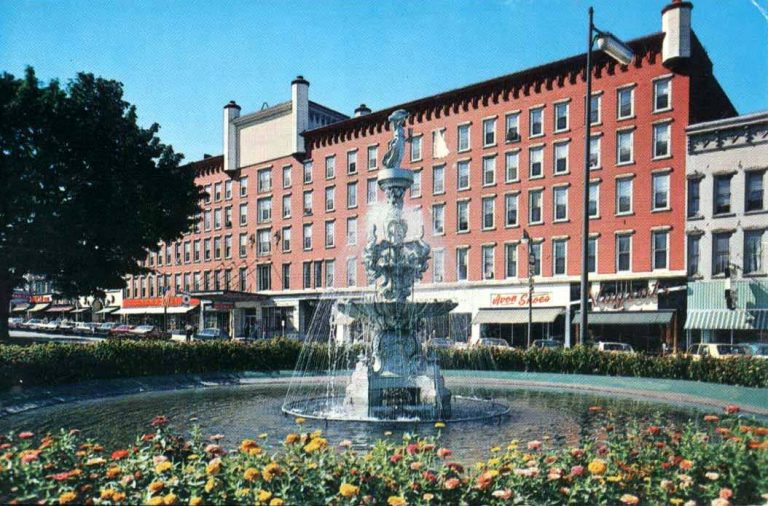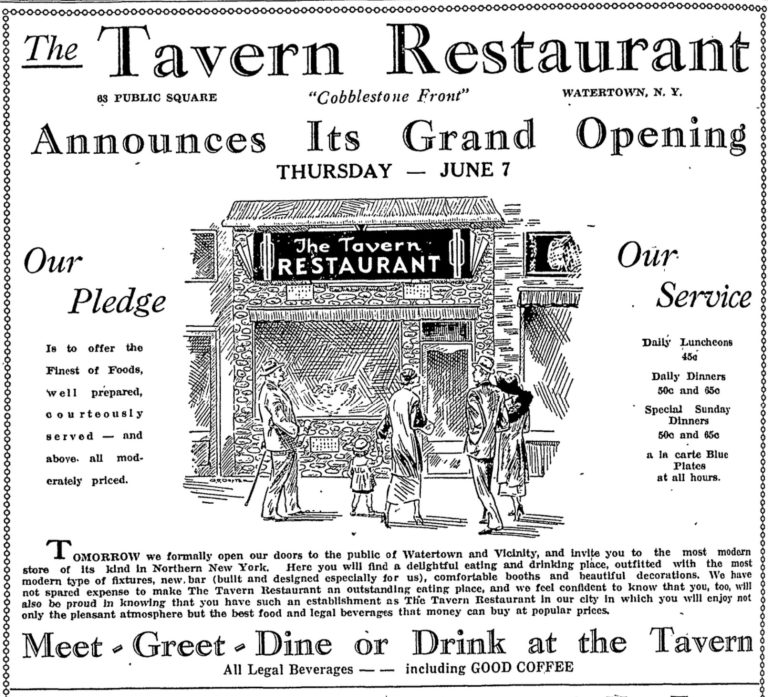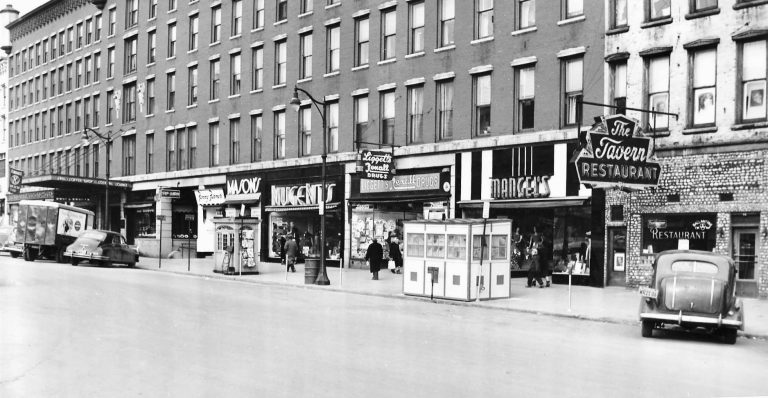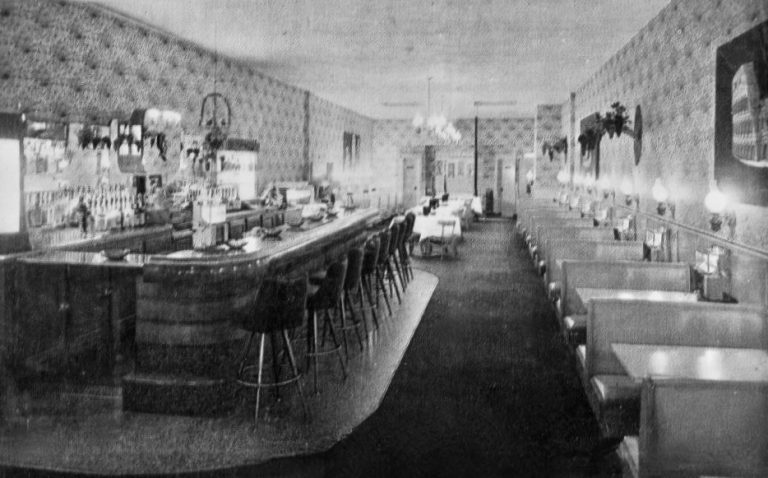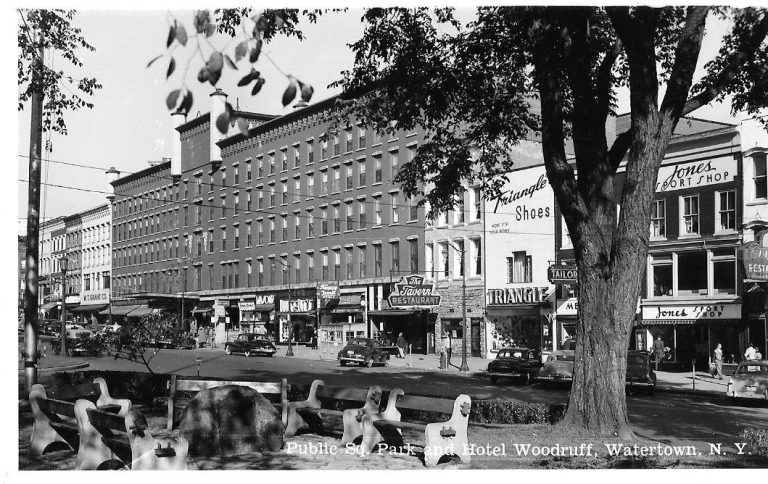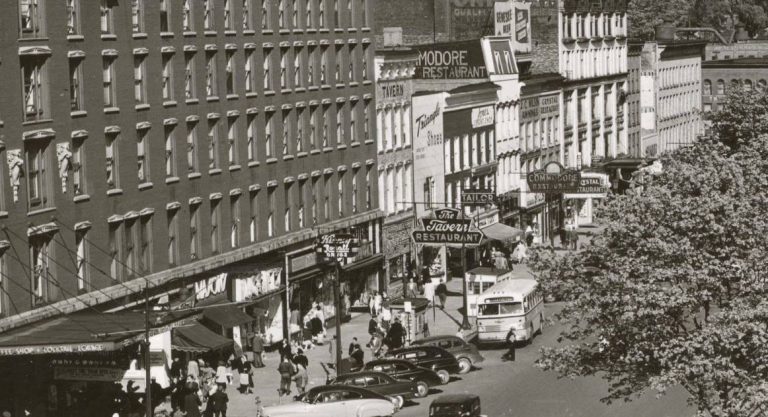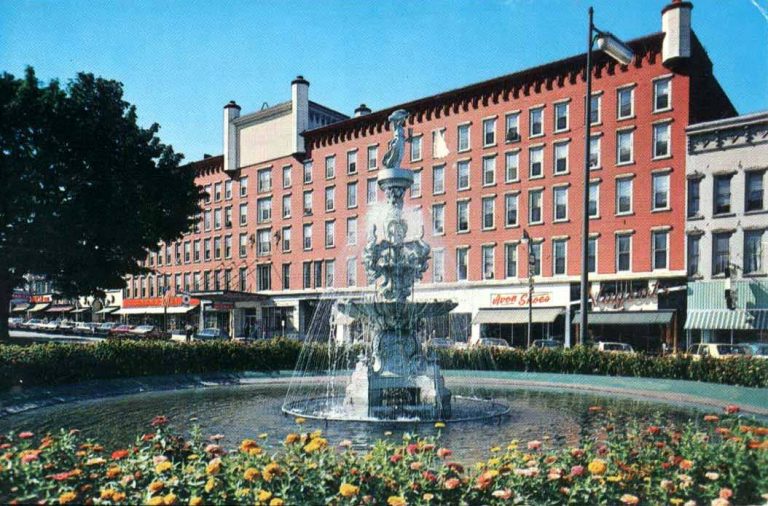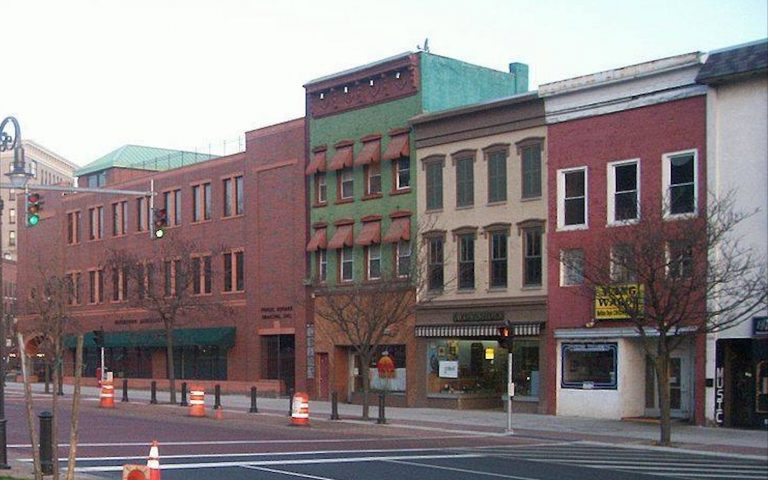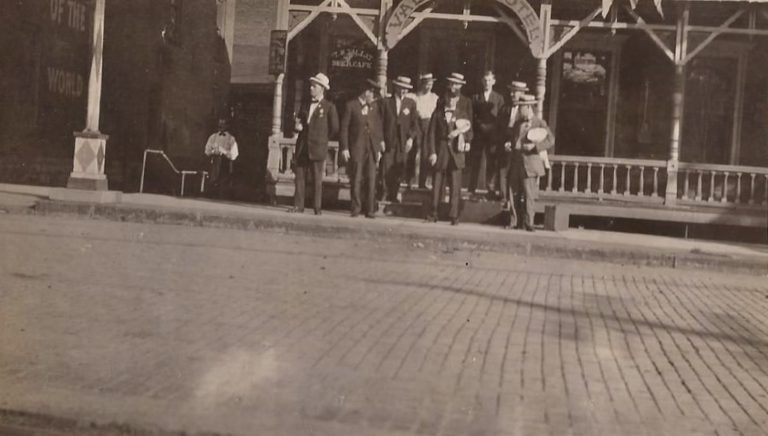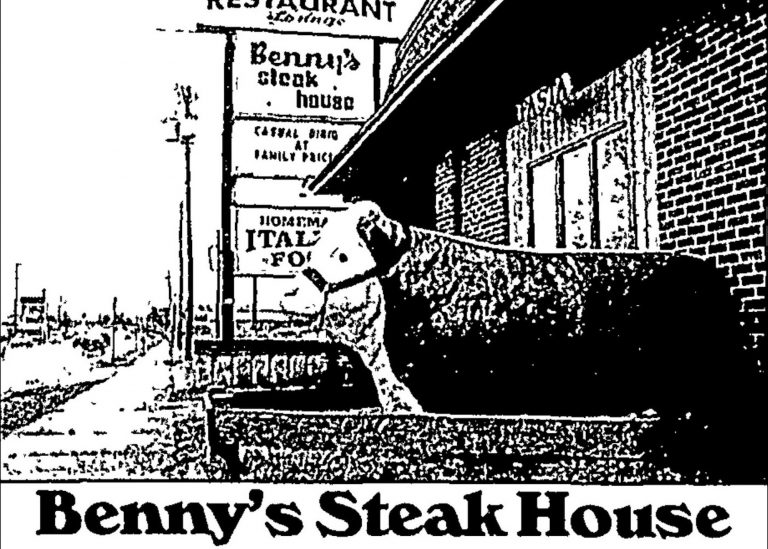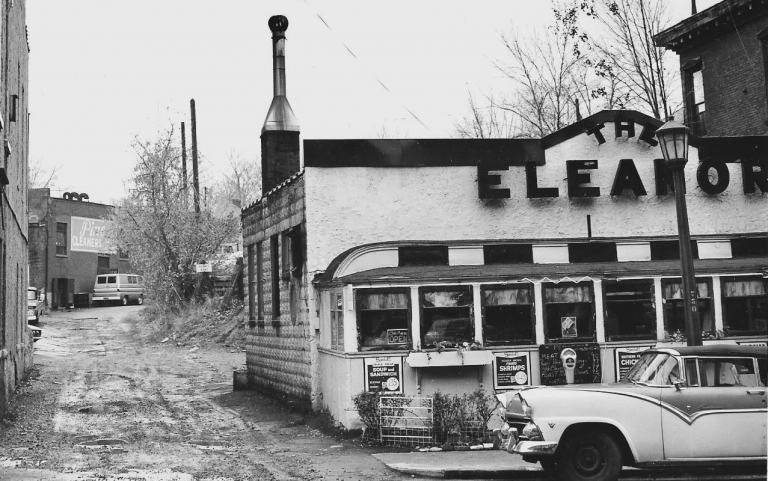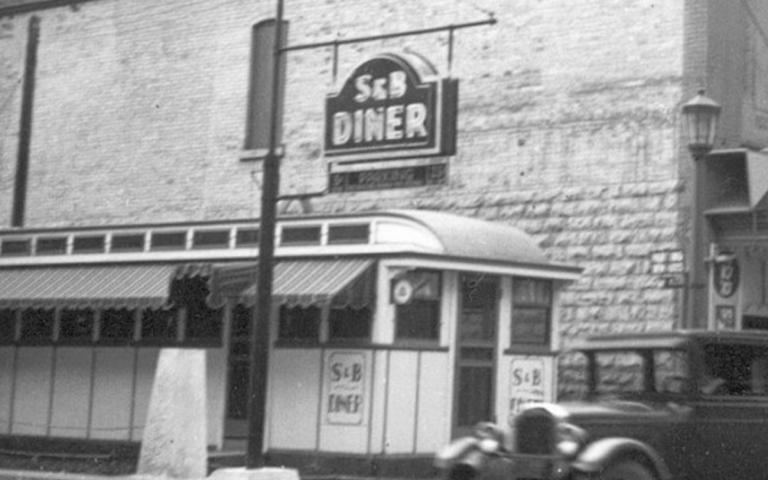Tavern Restaurant and Enrico’s, Longtime Public Square Eateries For Over 50 Years
Before becoming the Tavern Restaurant in the mid-1930s and later Enrico’s Restaurant in the 1960s, the building at 63-65 Public Square next to the former Hotel Woodruff was home to many establishments. Miller-Strong Drugs was a successor to A. P. Sheldon’s in 1920, only to be purchased by Liggett’s Drug Store in 1923. From 1922 to 1935, Watertown’s well-known Chinese cuisine chef, Willie Gee, called the second floor of the building home to his restaurant.
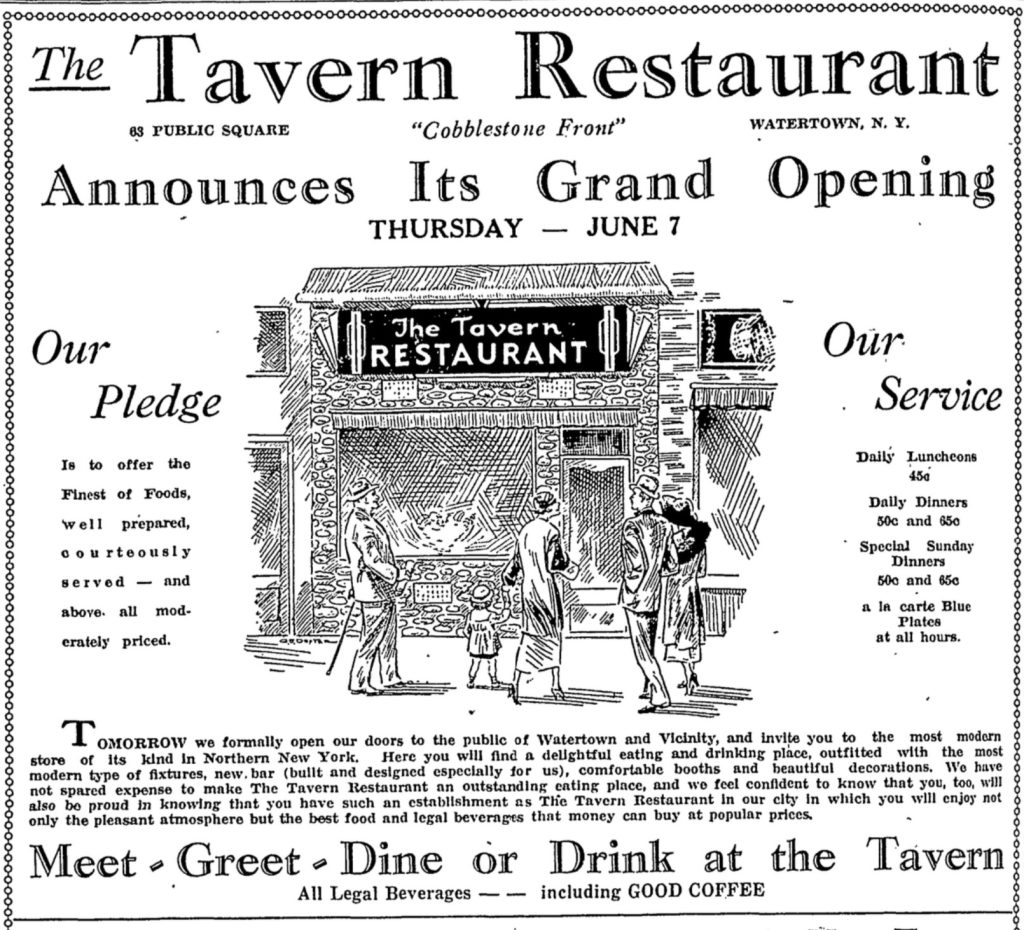
It was in 1934 that the Tavern Restaurant opened on the ground floor, beginning a two-plus decade run. With a storefront of cobblestone, the Tavern Restaurant was owned and operated by a trio of immigrants. Nicholas “Nick” Pappas was born Dec. 6, 1892, in Triglea, Asia Minor, now Turkey, to Rev. Vasilios and Versae Pappas. If the name “Vasilios” sounds familiar, Nicholas Pappas was one of the founders of the local Greek Orthodox Church, which was named after his father, who was killed by Turks when Nicholas was a small child.
Peter G. Gregor and his older brother, Thomas, who was a brother-in-law to Pappas, were born in Kerk Klese, Greece, and immigrated to the United States around 1912. In 1920, the two brothers purchased the E. J. Hungerford Block on Court and Jackson Streets and established a confectionary. Three years later, they purchased the Booras Chocolate Shop in the Fairbanks Bldg., opening the Gregor Coffee Shop for several years.
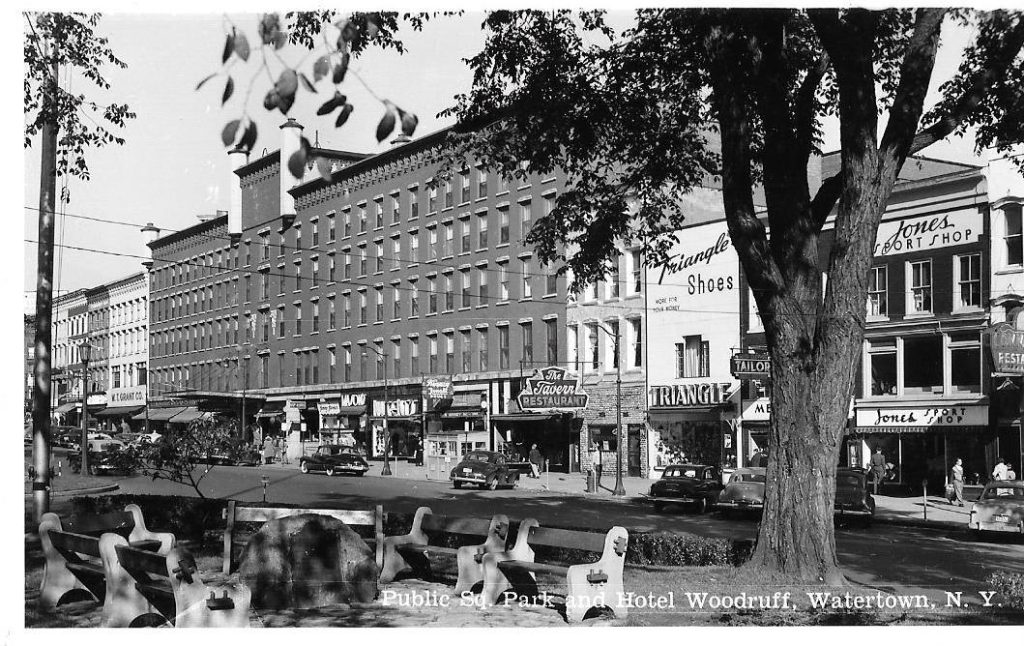
After two years in business with the Tavern Restaurant, the brothers and Pappas purchased the three-story brick building housing it. Unfortunately for Peter, within a few years, he would face an indictment for hiring a “firebug,” also known as an arsonist, to burn down his former coffee shop, then known as The Cosmo, hoping to cash out the insurance to save his home. Having suffered an illness caused by the disease of the pancreas and by internal hemorrhages from ulcers in the stomach, Peter Gregor passed away the following year at the age of 42.
Ironically, the Tavern Restaurant was destroyed by fire three years later on December 29, 1943. The restaurant suffered heavy losses totaling $50,000, and four firemen were injured, though none seriously. The Watertown Daily Times reported of the fire—
Only smouldering (sic) ruins of the Tavern Restaurant remained today as the aftermath of an estimated $50,000 fire which swept through the interior of a three-story brick building, 63 Public Square, for more than two hours Wednesday evening and caused extensive smoke, water damage to adjoining business establishments.
Twenty-six patrons were in the restaurant, located on the north side of the Square, when flames broke and they scrambled to safety through the front-door exit. Some of them were nearly panic stricken and one unidentified woman was partially trampled after falling by the door in a rush to escape.
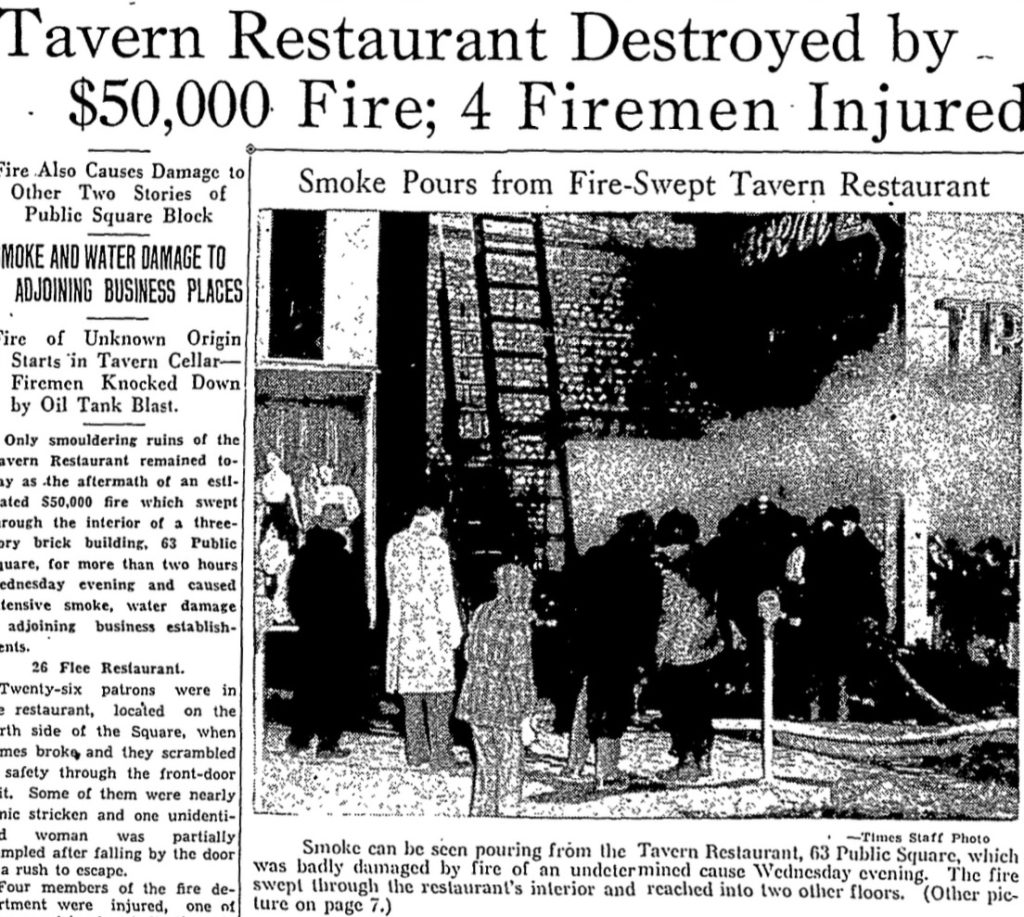
The building, assessed at $44,000, was only partially insured. The cause of the fire was unknown, though it was suspected to have started with a cigarette tossed into a wastebasket. It was first detected at 7:45 p.m. by an unidentified soldier who had gone downstairs to use the bathroom. Subsequently, the restaurant’s cashier noticed it at about the same time.
The firewalls helped prevent the flames from spreading to other establishments, but the bar fell through the main floor and into the cellar around 10 p.m. There was no mention of renovations and the Tavern Restaurant’s reopening, but they both occurred shortly after, but not before Thomas Gregor’s death just three weeks later. Gregor, 52, had a long illness related to a stomach ailment.
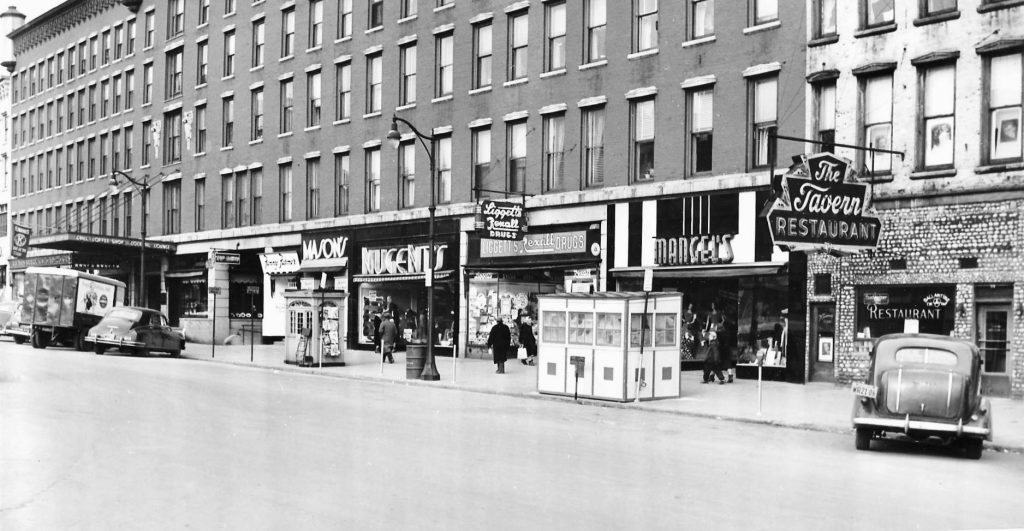
Nick Pappas continued the business until the mid-1950s when he retired. Pappas sold the restaurant but retained ownership of the building until his death in August 1961 at the age of 68. Like the Gregors, Pappas immigrated to the United States in 1912, but unlike the others, he came alone and lived for five years in New Haven, Conn., where he operated a shoe store until 1932.
In 1963, the three-story Tavern building at 65 Public Square was sold for $45,000 to David H. Kallay and Richard Fiaschetti by Mrs. Mary Pappas, Mrs. Patra Gregor, Mrs. Ann Gregor Arvan, Mrs. Georgia Gregor Zarifis and Peter Gregor. Kalley and Fiashetti had operated Enrico’s Restaurant in the building for the three previous years, and in 1968, the duo would remodel the restaurant.
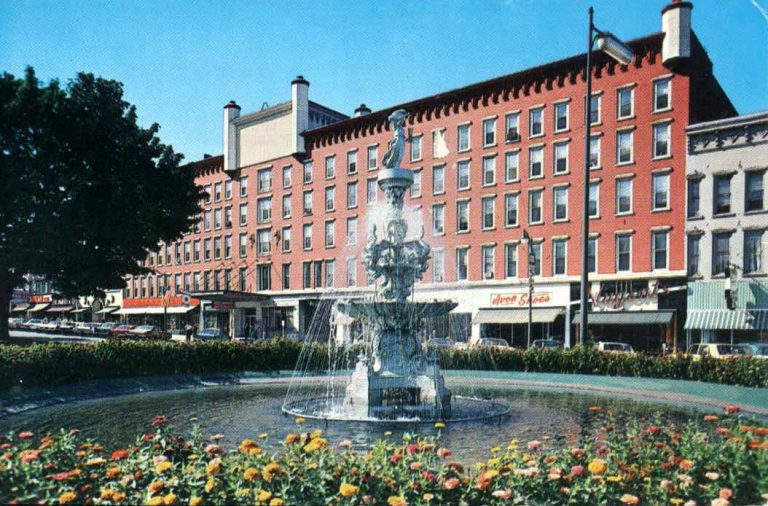
Enrico suffered damage during the 1976 razing of the Woodruff. In June 1977, they sought to recover $18,860.21 in damages caused by Northern Demolition’s negligence in demolishing the Hotel Woodruff in February 1976.
In its lawsuit, Enrico’s contends that the demolition contractor damaged the restaurant’s roof, removed a fire escape without replacing it, and provided inadequate protection to the west wall, resulting in damage to the ceilings and walls of the building. Enrico further contended that Northern Demolition failed to properly carry out the terms of its contract with the city to raze the old hotel.
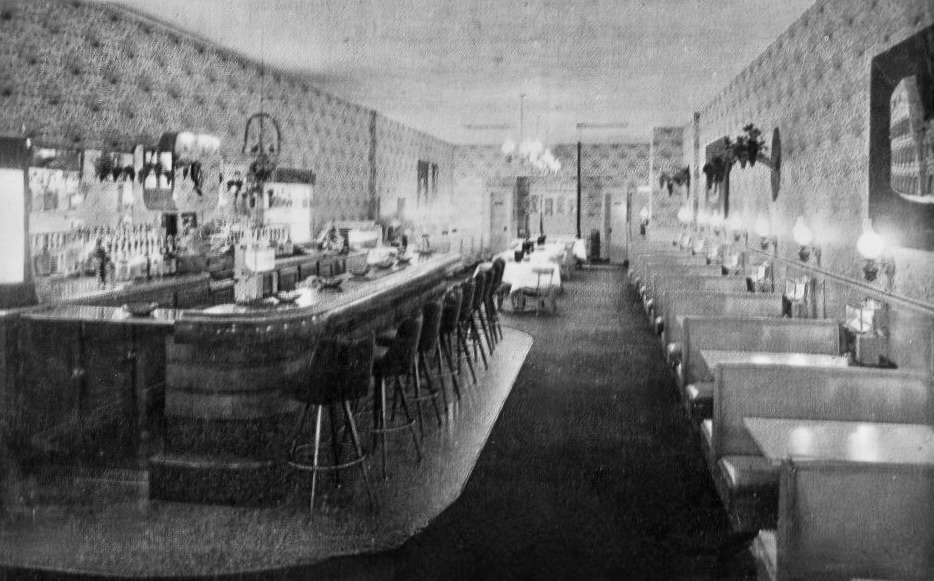
A few years later, in 1979, Enrico’s got a head start on the Buffalo chicken wing craze, being one of the first, if not the first, to serve fried wings in hot sauce three years before Wing Wagon opened two doors down on Public Square. Nine years later, owners Richard and Mary Fiashetti sold the business and building to Todd L. LaVere for $125,000 in August 1988.
Richard Fiashetti passed away at the age of 65 in 1997, and David H. Kallay died of a heart attack in his Orange City, Florida, home in late December of 2009.
LaVerre renamed the restaurant Kegler’s Lounge, and the following year, 1989, the first review appeared in the Watertown Daily Times—
On the edge of the hole left by the demolition of the Woodruff Hotel sits Kegler’s Lounge, obviously popular with the masses that gather there.
The food at Kegler’s is very palatable. On Friday’s, a cup of creamy and flavorful corn chowder will sooth end-of-week jitters. A julienne salad is a great noon selection, its base of iceberg lettuce hidden in slices of turkey, baked ham, cheese, a host of garden vegetables and hard-cooked egg slices.
Even the Friday fish fry special is decent, a plank of frozen fish piping hot inside a jacket of crisp breading. Golden fries and freshly made coleslaw contribute the crunch of coolness for palate contrasts.
For dessert, commercially available German chocolate cake is sweet, and best if shared by two.
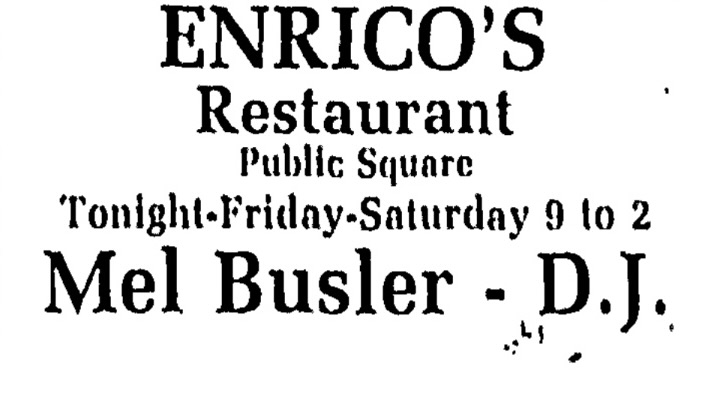
Kegler’s proved to be popular, but changes to New York State’s smoking regulations in the early 2000s, accompanied by a Quick Draw fiasco and back taxes owed, had the lounge listed for sale in 2005 for $350,000. Later that fall, LaVerre accepted an offer from Vonnette T. Monteith, an officer at Fort Drum and the owner of Euro Pottery, 122 Court St., who planned to open a Mexican restaurant.
Casa de Flor opened in early 2006 but changed names and chefs in 2007 to VV’s Rosa Violeta. In 2008, it rebranded yet again to Sol Latino . . . for a short while, then Tico’s Mex Mex Grill, the last two restaurants leased from building owner Monteith. Tico’s eventually moved to Great Bend in 2012.
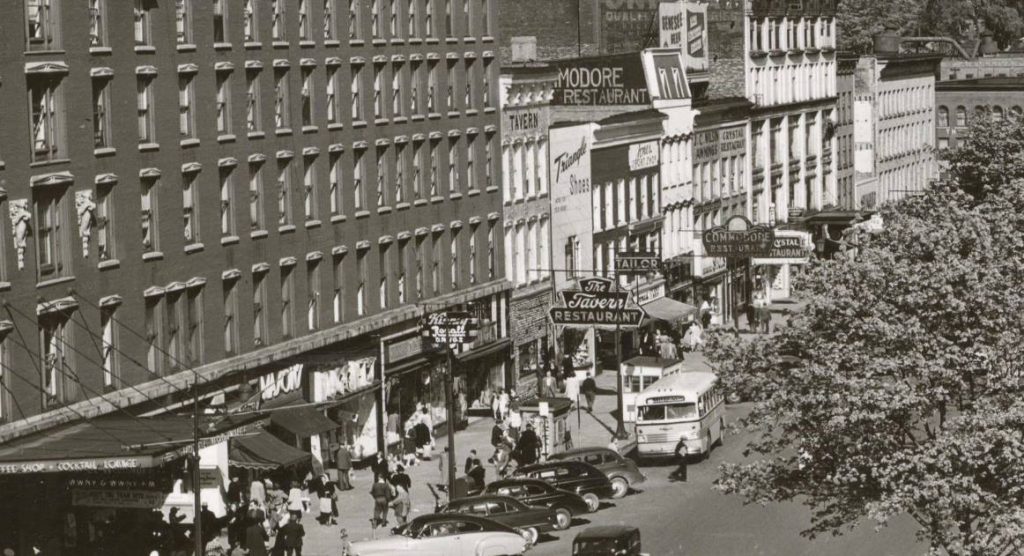
The restaurant underwent renovations in 2014 and leased space to Edirin “Eddy” Igho-Akiti, who relocated his restaurant and renamed it “Mr. Bigg’s,” serving Caribbean and American comfort food cuisine. Mr. Bigg’s won the Best Local Vendor in Attendance in 2016’s Taste of the Town. Unfortunately, a melee in front of Mr. Bigg’s in February 2017 after it ventured into “club scene” territory damaged the business’s reputation, forcing it to close and relocate to Syracuse on N. Salina Street, near St. Joseph’s Hospital, where it still operates today.
In early 2018, Beanie’s Sports Lounge opened . . . for a few months.
Most recently, Ms. Monteith opened her second restaurant in her building, Empire Square, in 2021, serving Southern fusion food with their Prohibition & Bourbon cocktail bar. The building was repainted to coincide with the new restaurant’s quirky aesthetic.
